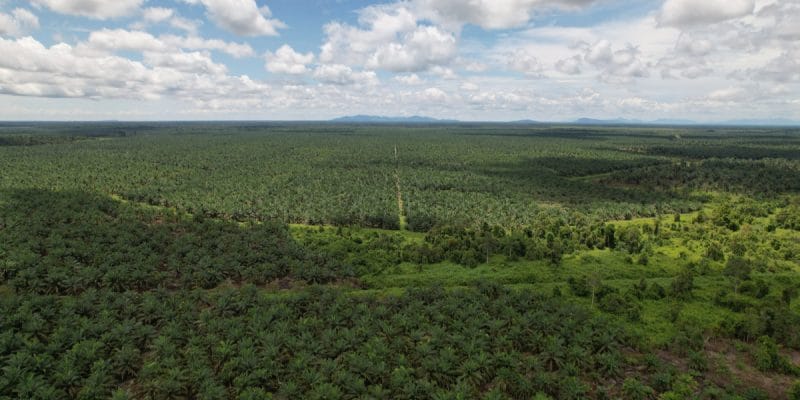In a report published on December 8th, 2021, the non-governmental organizations Greenpeace Africa and Green Development Advocate (GDA) highlight France's involvement in Camvert, a palm plantation project that could destroy 60,000 hectares of equatorial forest in southern Cameroon. According to the report, the seeds planted by Camvert were supplied by a subsidiary of CIRAD, a French-funded organization.
In Campo, in the south of Cameroon, the company Cameroun Vert (Camvert) has razed nearly 2,000 hectares of forest near the Campo-Ma’an National Park, which has exceptional biodiversity, to create an oil palm plantation. After repeatedly denouncing the threat that this project represents for the climate and the indigenous populations, two environmental organizations active in Cameroon are highlighting the role played by France in the implementation of the project of the largest monoculture palm oil plantation in Africa.
In a 29-page report, published on December 8, 2021, Greenpeace Africa and Green Development Advocate (GDA) establish the link between the Camvert project and France. “Camvert’s seeds are supplied by PalmElit, a for-profit organization owned by the Centre de coopération internationale en recherché agronomique pour le développement (CIRAD) and the French company Avril, the European leader in biofuels,” the report says.
The “myth of sustainable forest management
For the two non-governmental organizations (NGOs), CIRAD plays an important role in the great myth of “sustainable forest management” that France is exporting throughout Central Africa. At a conference organized on October 6th, 2021 by the City of Paris and the newspaper Le Monde on the preservation of Central African forests, Alain Karsenty, an economist at CIRAD, emphasized the importance of forests for biodiversity and the climate, without mentioning the profits made by their employer by contributing to deforestation in southern Cameroon.
However, this is not CIRAD’s first time supporting deforestation in southern Cameroon. According to Greenpeace Africa and GDA, the French-funded organization signed a long-term collaboration agreement in 2014 with d’Halcyon Agri, then the parent company of the rubber company SudCam. The goal of the agreement being to maximize productivity and yields from SudCam’s rubber plantation, for which more than 11,600 hectares of virgin forest were razed in southern Cameroon, and near the Dja Wildlife Reserve, a Unesco (United Nations Educational, Scientific and Cultural Organization) World Heritage Site.
Read also-CAMEROON: Camvert and the forest peril in the Congo basin
In their joint report, Greenpeace Africa and the Cameroonian NGO Green Development Advocates also report on the denunciations of the Camvert project by the local populations of the districts of Campo and Niete. The development of the Camvert plantation has reduced their livelihoods and exasperated their land issues. These districts are already experiencing land pressures due to the presence of the Hevecam rubber plantation, its sister company SudCam, the Campo Ma’an National Park and the newly created Manyange na Elombo National Marine Park in their area.
Boris Ngounou







